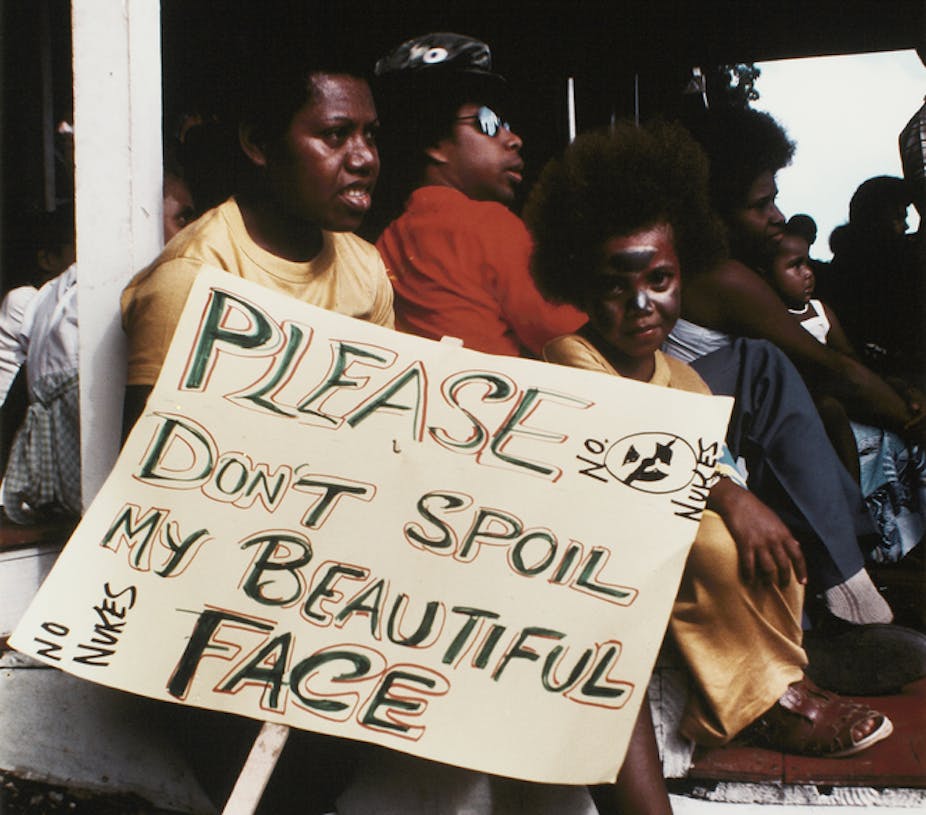Today, while the world marks Press Freedom Day, draconian cyber defamation laws, journalist killings and legal gags are growing threats to the media across the Asia-Pacific. Media intersects with the raw edge of politics in a region where countries have plunged into turbulent times of coups and terrorism.
A decade-long civil war on Bougainville, four coups in Fiji (if the ill-fated George Speight putsch is counted), ethnic conflict in the Solomon Islands, factional feuding in Vanuatu and political assassinations in New Caledonia and Samoa have all been part of the volatile mix in recent years.
Some newshounds in Papua New Guinea have pursued political careers thanks to their media training, but most failed to make the cut in national politics. One of Fiji’s best investigative journalists and media trainers ended up as a spin doctor and henchman for wannabe dictator George Speight. Like his mentor, he is now languishing in jail for life for treason.
The editor of the government-owned newspaper in Samoa runs a relentless and bitter “holier than thou” democracy campaign against the “gutless” media in Fiji, which he accuses of being too soft on the military-backed regime. Yet the editor-in-chief of the rival independent newspaper accuses him of being a state propagandist in a nation that has been ruled by one party for three decades.
Journalists are still struggling to regain a free press in post-coup Fiji. A nervous regime is trying to restrict freedom of speech on all fronts with a general election approaching on September 17. Fiji is a critical testing ground for efforts to “renew trust” in the lead-up to the vote.
A leading publisher in Tonga was forced to put his newspaper on the line in a dramatic attempt to overturn a constitutional gag on the media. He won – probably hastening the pro-democracy trend evident in the royal fiefdom’s 2010 general election.
West Papua is the most critical front line for defending media freedom in the South Pacific at present. In West Papua, Indonesia still bans on foreign journalists in two Melanesian provinces where human rights violations are carried out with virtual impunity.
The West Papua Freedom Flotilla last September focused global attention on human rights and freedom of expression in the Indonesian-rule region. Vanuatu prime minister Moana Carcasses Kalosil recently challenged the United Nation Human Rights Council to act decisively to end the “international neglect” of the West Papuan people.
In the Philippines, journalists are assassinated with impunity. At least 206 journalists have been murdered since 1986 – 34 of them in the Ampatuan massacre in Mindanao in 2009. Four years later nobody has been convicted for these atrocities; there is a culture of impunity. The Philippines is a far more dangerous place for the media under democracy than it was under the Marcos dictatorship.
Australia’s shameful human rights violations and suppression of information about asylum seekers are other issues for media freedom.
A new means of suppression
The most disturbing new trend in the digital age has been dubbed electronic martial law – a new law in the Philippines that criminalises e-libel in an extreme action to protect privacy. The Supreme Court in Manila ruled in December 2012 to temporarily suspend this law and then extended it until further notice in February 2013.
However, in February this year, the court ruled that the law was indeed constitutional:
…effectively expanding the country’s 80-year-old libel law into the digital domain.
This Anti-Cybercrime Act is like something out of the Tom Cruise futuristic movie Minority Report. An offender can be imprisoned for up to 12 years without parole and truth is not recognised as a defence. The law is clearly a violation of Article 19 of the International Covenant on Civil and Political Rights.
Last month, the indictment of two journalists, Alan Morison and Chutima Sidasathian, for alleged criminal libel under a similar Computer Crime Act in Thailand “may spell doom” for the online news website Phuket Wan.
Already a copycat draft law to gag cyberspace is making an inroad into the Pacific. Bloggers in Papua New Guinea are up in arms about proposed changes to a cyberspace law that will outlaw anonymous and “slanderous” social media postings. Opposition leader Belden Namah this week described this development as “dangerous” for Papua New Guinea’s traditional freedom of speech. He says prime minister Peter O’Neill should grow a thick skin.

Strategies to develop free media
Media organisations themselves are too dependent on donors in the region for the limited training that does go on. This makes them captive to the donors’ agendas.
Many view ventures as band-aid projects out of step with journalism training and education in Australia and New Zealand. Australian aid has contributed little to the main university-based journalism schools – the best hope for sustainable media training and education in the region. But even the universities are under threat.
In Timor Leste, on the cusp of Asia and the Pacific, there is severe criticism of media education and training strategies. Award-winning José Belo, arguably his country’s finest investigative journalist and president of the Timor Leste Press Union, is highly critical of “wasted” journalism aid projects totalling more than US$5 million.
Belo was named this week on the Paris-based Reporters Without Borders inaugural list of 100 world information “heroes”.
A “journalism in transition” conference in Dili last October attempted to strengthen the self-regulatory status of the news industry “in response to the so-called international aid, particularly from the United States and Australia, which has been misused in the name of journalism in this country”. The good news was that there was a united stand on a new code of ethics.
Journalism must fundamentally change in the Pacific to cope with the region’s challenges. Just as much as it needs to reach across an increasingly globalised world, it needs to build a renewed bond with its own communities. Trust, participation, engagement and empowerment are essential.

